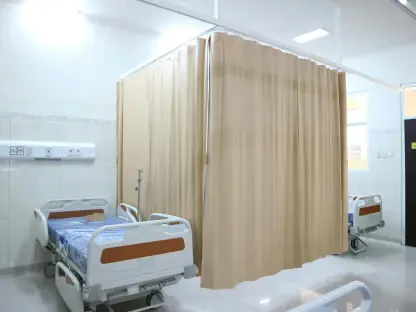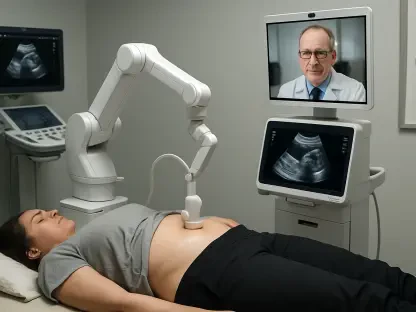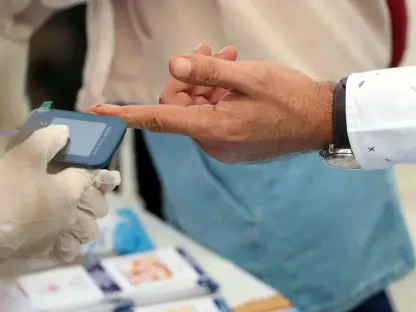In a significant shift toward digital transformation, a major hospital trust in Sheffield has encountered substantial challenges following the rollout of a new electronic patient record (EPR) system, sparking widespread concern among patients and healthcare advocates. Costing £85 million, this sophisticated system, developed by a leading software provider, was implemented to streamline patient data management and enhance care coordination across various departments. However, since its launch earlier this year, the transition has been marred by operational hiccups, particularly affecting outpatient bookings and waiting lists. Reports of system malfunctions have left many patients anxious about their treatment status, raising questions about the reliability of such technology in critical healthcare settings. This situation highlights the delicate balance between adopting innovative tools for efficiency and ensuring seamless service delivery during periods of change, setting the stage for a deeper exploration of the unfolding challenges and responses.
Patient Frustrations and Operational Challenges
The introduction of the new EPR system at Sheffield Teaching Hospitals NHS Foundation Trust has led to significant disruptions, with patients voicing frustration over delays and uncertainties in their care. Many have reported difficulties in securing outpatient appointments, with some fearing they may have been inadvertently removed from waiting lists due to inaccessible data. This has created a palpable sense of unease, as individuals awaiting critical treatments, such as those in cardiology, grapple with the possibility of prolonged delays. Clive Betts, MP for Sheffield South East, has echoed these sentiments in correspondence with hospital leadership, highlighting constituent concerns about system reliability. The anxiety stems from a lack of clarity on how these technical issues impact treatment timelines, underscoring the real human cost of technological transitions in healthcare environments where timing is often paramount to patient outcomes.
Beyond individual experiences, the broader operational impact of the EPR system’s rollout reveals a complex web of challenges for the hospital trust. Departments across the board have faced hiccups in managing appointments and correspondence, with initial reports pointing to data integration issues as a primary culprit. These disruptions have not only strained administrative processes but also placed additional pressure on clinical staff who must navigate an unfamiliar system while maintaining patient care standards. The scale of this change, involving thousands of records and intricate workflows, has amplified the difficulties, as even minor glitches can cascade into significant delays. This scenario reflects a common hurdle in healthcare digitization, where the promise of efficiency often collides with the reality of adapting to new technology under the intense demands of a live medical environment.
Hospital Response and Mitigation Efforts
In addressing the mounting concerns, the leadership at Sheffield Teaching Hospitals NHS Foundation Trust has acknowledged the initial disruptions caused by the EPR system implementation. Kirsten Major, the trust’s chief executive, has openly admitted to challenges in outpatient appointment processes, emphasizing that these issues were quickly identified and are being tackled head-on. A dedicated program has been established to resolve lingering problems, with many affected clinics already seeing improvements. Importantly, assurances have been made that the system has not experienced a complete failure, and safeguards like retaining data from the previous platform alongside paper records ensure no patient information has been lost. This proactive stance aims to rebuild confidence among patients and staff, demonstrating a commitment to minimizing the impact on waiting times and care delivery.
Further bolstering their response, the trust has prioritized urgent cases through clinical triage, ensuring that those with critical needs receive timely attention despite the ongoing disruptions. Patients are being informed that communication will follow once appointments are scheduled, aligning with standard waiting times for specific services. This structured approach seeks to maintain a sense of order amid the transition, offering a clear pathway for resolution. Moreover, the hospital’s transparency about these challenges reflects an understanding that such large-scale technological shifts inevitably encounter obstacles, yet can be managed with swift action and clear communication. By focusing on immediate fixes while keeping patients informed, the trust aims to navigate this turbulent period without compromising the quality of care provided to the community.
Long-Term Vision and Potential Benefits
Despite the current setbacks, the trust remains optimistic about the long-term advantages of the new EPR system, viewing it as a cornerstone for modernizing healthcare delivery. The platform is described as clinically advanced, integrating patient information into a single, accessible interface that enhances visibility for care providers. This unified approach is expected to improve decision-making by offering a comprehensive view of patient histories, reducing the likelihood of errors and redundancies. Such capabilities are particularly vital in a high-stakes environment where every detail can influence treatment outcomes. The vision extends beyond immediate operational fixes, focusing on how this technology can fundamentally transform the way care is coordinated and delivered across departments, setting a new standard for efficiency.
Looking further ahead, the EPR system holds promise for regional integration, potentially linking with other trusts in South Yorkshire to create a cohesive patient record network. This ambitious goal could facilitate seamless care coordination across multiple facilities, ensuring that patients receive consistent treatment regardless of where they access services. While these benefits are yet to be fully realized, they provide a counterpoint to current frustrations, suggesting that the disruptions may be a temporary trade-off for significant future gains. The trust’s emphasis on these possibilities reflects a broader trend in healthcare, where digital tools are increasingly seen as essential for addressing systemic challenges. This perspective encourages patience and understanding from stakeholders, highlighting that enduring short-term pain could pave the way for a more connected and effective healthcare ecosystem.
Reflecting on a Digital Transition
Looking back, the rollout of the new EPR system at Sheffield Teaching Hospitals NHS Foundation Trust stirred considerable unrest, particularly among patients facing uncertainties in outpatient services and waiting list management. The trust grappled with operational disruptions that tested the resilience of both staff and systems, yet responded with transparency and targeted solutions to mitigate the impact. As these efforts unfolded, the commitment to preserving data integrity through backup measures provided a critical safety net. Moving forward, the focus should shift toward refining the system’s functionality while maintaining open dialogue with patients to rebuild trust. Exploring partnerships for regional integration could further solidify the system’s value, ensuring that the lessons learned from this challenging period inform smoother transitions in other healthcare settings. This balanced approach between addressing immediate concerns and pursuing long-term innovation offers a roadmap for navigating the complexities of digital transformation in medicine.









